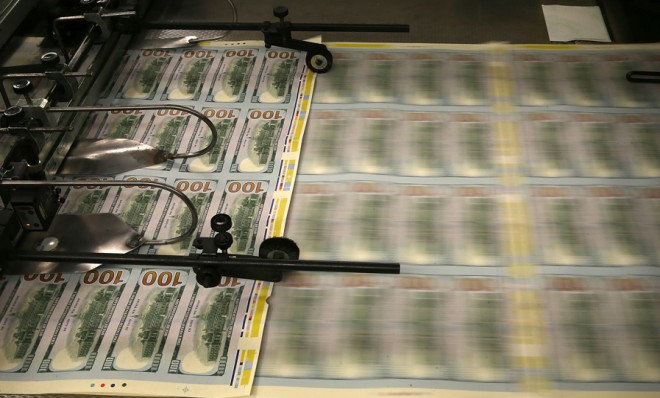The death of easy cash: Can the global economy cope?
Ben Bernanke has sent financial markets into chaos

A free daily email with the biggest news stories of the day – and the best features from TheWeek.com
You are now subscribed
Your newsletter sign-up was successful
Federal Reserve Chairman Ben Bernanke's announcement this week that the central bank could begin winding down its stimulus program initially seemed like good news.
After all, the impetus behind the tapering, as it is known, is that the U.S. economy is growing at a steady — if modest — pace. With the economy on surer footing, it has become less necessary for the Fed to spend tens of billions of dollars per month buying Treasurys and mortgage-backed securities, all of which has served to keep interest rates low and grease the economy's wheels.
So how did global markets react? By completely freaking out. The S&P 500 plunged 2.5 percent on Thursday, its largest drop since 2011. Asian markets plummeted. The CBOE Volatility Index, which measures expected market volatility, jumped by 23 percent.
The Week
Escape your echo chamber. Get the facts behind the news, plus analysis from multiple perspectives.

Sign up for The Week's Free Newsletters
From our morning news briefing to a weekly Good News Newsletter, get the best of The Week delivered directly to your inbox.
From our morning news briefing to a weekly Good News Newsletter, get the best of The Week delivered directly to your inbox.
One major problem, writes Nathaniel Popper at The New York Times, is that while confidence in the U.S. economy might be growing, investors aren't so sure that the rest of the world is ready to deal with rising interest rates. And China, which has carried the global economy on its broad shoulders in the post-crisis era, could be hit harder than most.
Bernanke's hints of tapering points "in the direction of more expensive credit for the Chinese economy," writes Tyler Cowen in Marginal Revolution. "This economy was addicted to cheap credit in the first place, so that’s a big deal."
That has stalled lending in China "much like credit markets froze in the United States right after Lehman failed," Patrick Chovanec, chief strategist at Silvercrest Asset Management, tells The New York Times. The Chinese central bank has responded by injecting $8.2 billion into the economy.
Still, China's liquidity squeeze and concurrent manufacturing slowdown is spooking investors worldwide. Interest rates also rose dramatically in countries such as Indonesia, Brazil, Russia, and Mexico.
A free daily email with the biggest news stories of the day – and the best features from TheWeek.com
The question remains whether the chaos is an overreaction to Fed's announced actions or a more permanent state of affairs. Bernanke's statement was vague enough that the Fed has plenty of wiggle room to pull back on tapering if market volatility begins to damage the U.S. economy.
Whatever happens, we will gain insight on the current economic recovery, writes The Washington Post's Neil Irwin:
In effect, with the Fed starting to think about an exit from an era of easy money, it will be a great test of just how resilient this economic recovery really is. If the whole thing — the rises in stock prices, in corporate earnings, in the housing market, even in job growth — is driven solely by the flood of money, or whether five years of zero-interest rates and trillions of dollars in bond purchases have succeeded at getting a more resilient economic engine for the United States up and running. [Washington Post]
Markets did not recover Friday morning, with the S&P 500 down by 0.3 percent.
Keith Wagstaff is a staff writer at TheWeek.com covering politics and current events. He has previously written for such publications as TIME, Details, VICE, and the Village Voice.